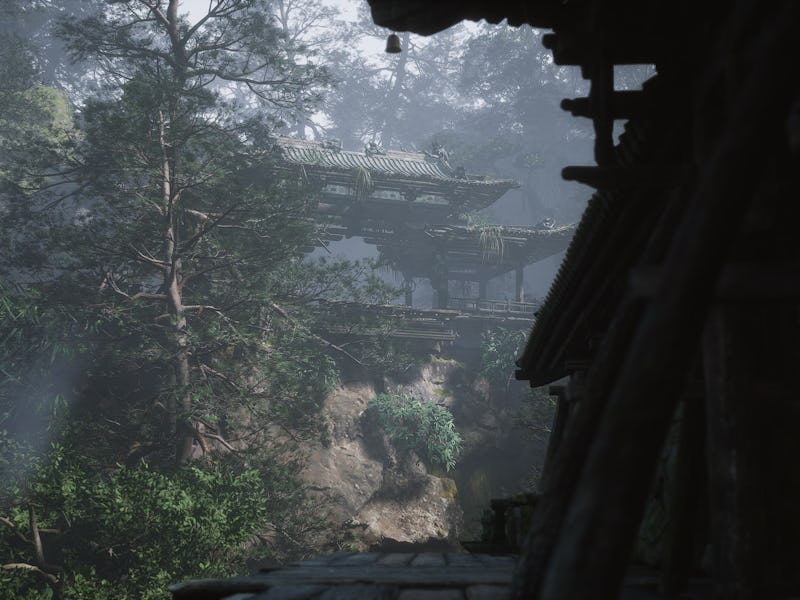Black Myth: Wukong Isn't Even Good, But That Won’t Stop Chinese Nationalist and Anti-Woke Sales
Definitely not a 10/10.

In Black Myth: Wukong, after I crushed a nasty snake boss, the game’s heroic monkey protagonist triumphantly marched through the temple gates only to find... another boss. I wearily trounced this bear boss too, but what I really wanted was new characters to chat with or a nice spot to lay my head. Perhaps in the game’s next chapter? No shot. I walked forward, only to enter another area full of aggressive beasts and visually appealing swathes of barren wasteland.
After 10 years of game development, Chinese developer Game Science’s Black Myth: Wukong has had a viral reception, a Tencent minority investment, and unbelievable success on Steam. But while sinking a dozen hours into Black Myth, I couldn’t help but think of how gamers over the years would have complained if Elden Ring or Diablo IV contained such a sparse amount of content. Wukong’s world feels empty and devoid of life. (If that sounds familiar, I’m echoing what some players said about Starfield last year, another 60-hour RPG saga, which ironically had loads of side quests and was, in fact, much livelier than the internet might have you believe.)
Judged by its own merit (cultural and political context aside), Black Myth isn’t a particularly inventive game, even if the boss fights are very fun. The environments feel stale and small when you realize most doors stay glued shut and most walls aren’t climbable. When I ran through the outer limits of each biome, I found a deserted terrain with nothing to do. In between big bosses, the game doesn’t offer you any chance to reflect, rest, or enjoy the scenery. Instead, it merely pushes you to the next stage. The assets for the lands repeat; it’s almost as if you’re trudging through a maze. I haven’t come across any side content in the 12 hours I’ve explored the game. And for non-Chinese speakers, a common refrain is that the narrative and rough translation are confusing. I recommend turning on Chinese dialogue for more flavor and ambiance, but even then it sounds like one guy is acting out all the voices.
If Black Myth: Wukong isn’t as good as reviews say (it’s currently got an 81% on Metacritic, while Steam users have given it a 10/10), then what’s behind the title’s astronomical success? Months before the game’s launch, it had already drummed up an online furor that would eventually translate into Steam sales. And some self-proclaimed Gamergaters even suspect it’s part Chinese nationalism and part hype driven by the side of the internet that hates diversity and inclusion. This unholy combination may have inadvertently revealed a new path to success for edgy but ultimately mediocre video games.
Activating the ‘Anti-Woke’ Mob
Monkey meditating.
Last year, IGN published a report about the studio being plagued by claims of sexism, a piece that was critiqued by online users, which said that the evidence of sexism was merely vulgarity. The evidence cited included social media posts that likened game development to birthing a child and the creator’s excitement to sporting an erection. (Inverse confirmed the translations independently.) The logo for Game Science was also noted by Chinese content creators for its resemblance to sperm. The reality is that IGN’s report likely did not dissuade Chinese gamers from supporting Black Myth very much, as it described an internet culture many are familiar and comfortable with. In fact, the controversy may have boosted sales by raising awareness of the game.
Once upon a time, coming forward with cultural complaints about a piece of media might have facilitated healthy discussions and smarter consumption a few years ago, but in today’s climate, it’s more likely to trigger angry factions online and fuel sales of an otherwise ordinary product. It’s possible a similar phenomenon happened to PlayStation’s Stellar Blade, where a series of articles about the misogyny and objectification contained in the game ultimately worked to drive engagement.
Wooing Chinese Gamers
Biomes reuse assets.
At the same time, Chinese gamers have really needed a win. Considering how China banned consoles for 15 years, the country doesn’t have the most robust game development scene. In a regulatory environment that’s been harsh on gaming addiction and ruthless with approving new titles — as the Game Science developers themselves have noted in a blog post cited by IGN — few blockbuster releases like Black Myth have made it through a decade of development to compete with the likes of Ragnarok.
In many ways, Black Myth feels like a love letter back to Chinese culture and history. Journey to the West is one of the first Chinese novels I ever read, and it’s considered one of the four great literary classics. Some of the in-game temples are based on real-life locations.
All of these elements combined are a recipe for instant success. But without the rabid fanbase of Chinese nationalists and Gamergaters at the ready, I’m not sure anybody would be talking about Black Myth: Wukong in 2024. We’ve been fed to the gills with great games that challenge our expectations, make us fall in love with the characters, and obsessively draw fan art or write odes to the narrative. A retelling of a 432-year-old tale with pretty trees and Ragnarok-style combat doesn’t entirely hit the spot.